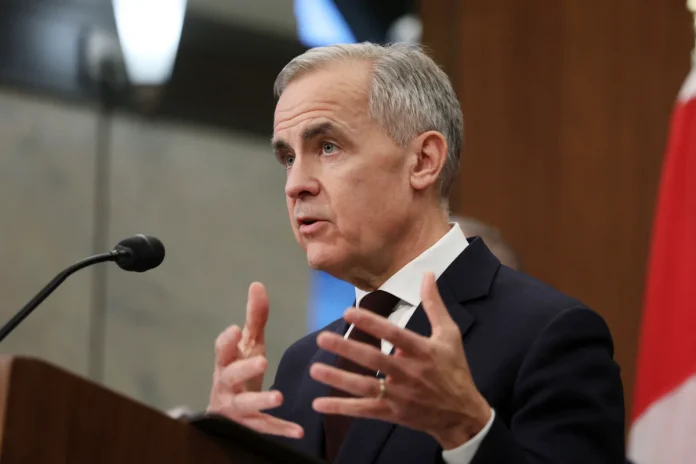Canada’s new oil pipeline deal with Alberta aims to boost Asian exports but faces climate criticism and cabinet resignations over emissions targets.
TORONTO: Prime Minister Mark Carney signed an agreement with Alberta to advance a new oil pipeline to Canada’s Pacific coast.
The memorandum of understanding aims to boost oil exports to Asia amid global trade uncertainty.
“At the core of the agreement, of course, is a priority to have a pipeline to Asia,” Carney said alongside Alberta Premier Danielle Smith.
The deal represents a significant policy shift from former prime minister Justin Trudeau’s administration.
Culture Minister Stephen Guilbeault resigned from cabinet hours after the signing in protest.
“I chose to enter politics to champion the fight against climate change,” Guilbeault stated.
He strongly opposed the agreement, claiming it would move Canada further from its greenhouse gas emission targets.
Smith welcomed the change after what she called “an extremely difficult time” under previous federal policies.
Carney insisted the project would make Canada’s oil sector more sustainable through carbon capture technology.
“The way we’re going to do that is in combination with the Pathways Project, which will be the largest carbon capture project in the world,” he said.
The plan calls for a formal project proposal by July 2026 after consultation with Indigenous groups.
Any infrastructure would require Indigenous co-ownership under the agreement.
The pipeline would need to pass through British Columbia, whose left-wing government wasn’t part of the deal.
Carney said the agreement responds to global trade shifts and profound uncertainty.
“This is a good day for Canada,” the prime minister declared.
He claimed the deal would make Canada and Alberta more independent, resilient and stronger. – AFP







